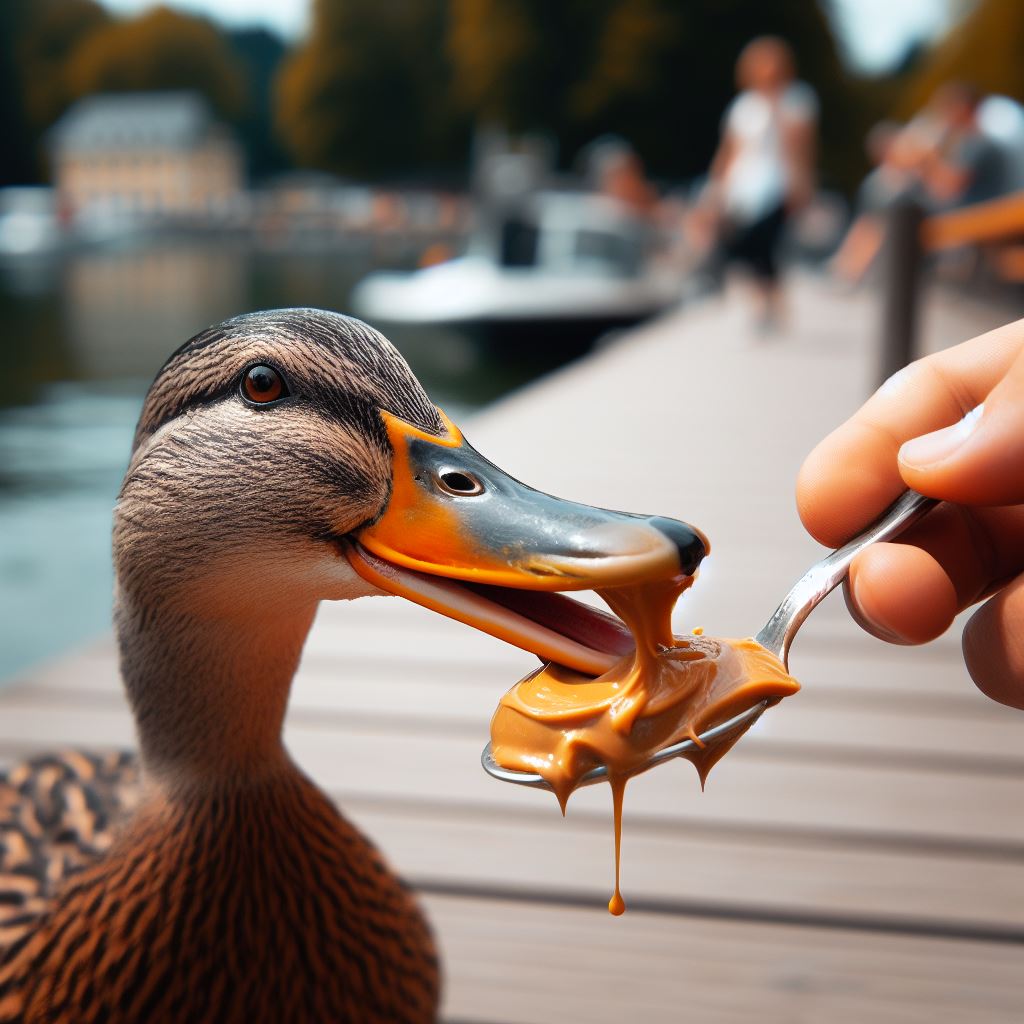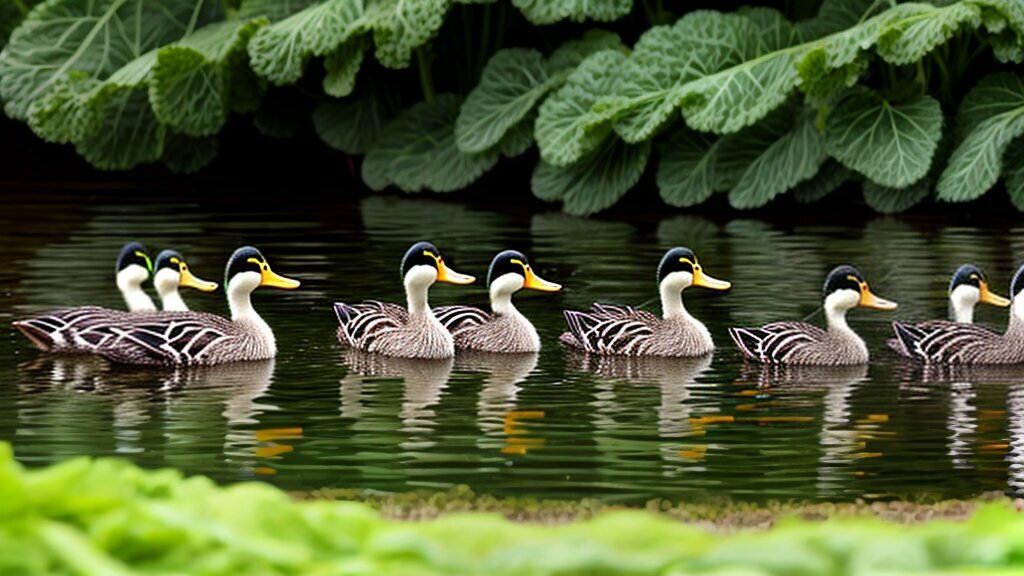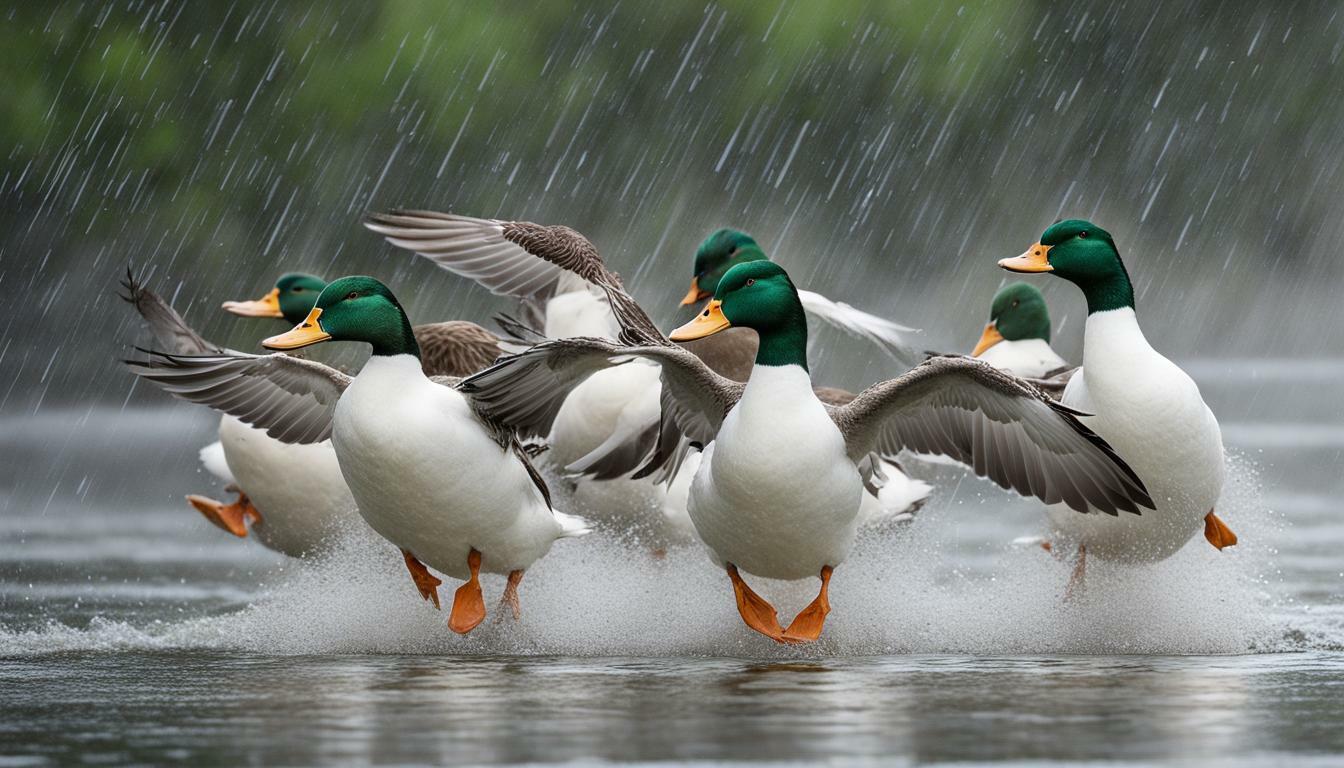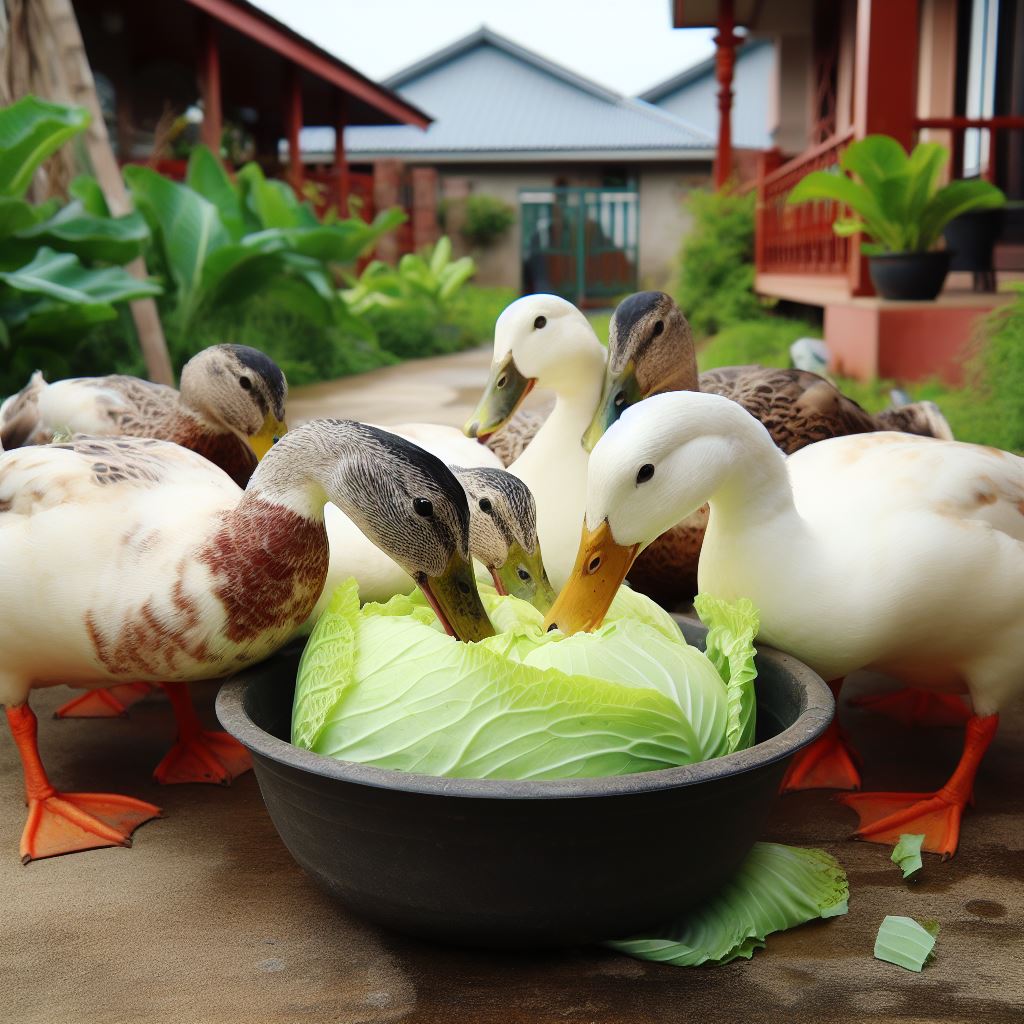Can Ducks Eat Peanut Butter?

Table of content:
Peanut butter might seem like a tasty treat to share with ducks. However, ducks have very different dietary needs and nutritional requirements than humans. While small amounts of peanut butter are unlikely to seriously harm ducks, it does not provide good nutrition. There are better food options to feed ducks while keeping them happy and healthy.
Ducks are omnivorous birds that have evolved to fill an ecological niche as aquatic grazers. In the wild, different duck species have varied natural diets consisting of:
- Aquatic plants
- Seeds
- Grains
- Green vegetation
- Aquatic invertebrates
- Small fish
- Amphibians
Their digestive systems are designed to process this range of foods through their muscular gizzard, aided by swallowed grit and rocks. This allows them to grind and digest coarse plant material.
Domestic ducks, such as Pekins and Mallard hybrids, still have the same dietary needs as their wild cousins. They forage well and thrive when allowed to graze freely on grass, aquatic plants, poultry feed, vegetables, fruit scraps, and insects.
Essential Nutrients for Ducks
For good health, duck nutrition should consist mainly of:
- Protein for muscle, feather, and egg development
- Carbohydrates for energy
- Fats and fatty acids for warmth and metabolism
- Vitamins and minerals like niacin, vitamin D3, calcium, and phosphorus
- Fiber for digestion
Foods like birdseed mixes, spinach, melon, oats, or peas provide balanced nutrition. An occasional treat is fine, but quality sources of essential nutrients should form the bulk of their diet.
Can Ducks Have Peanut Butter?
So can ducks eat peanut butter if they seem to enjoy it? Let’s take a closer look at how peanut butter fits into a duck’s dietary needs.
Nutritional Value of Peanut Butter
- High in fat and protein
- Lacks essential vitamins and minerals
- Low in fiber
- High calorie count compared to vegetables and grains
Peanut butter can contribute some nutrition to a duck’s diet through its protein and fat. However, it does not provide the balanced nutrition that ducks need across essential food groups. Depending on additives, it may also contribute to excess salt, sugar or trans fats.
Consequences of Overfeeding Peanut Butter
What happens if ducks eat too much peanut butter?
- Obesity – High fat & excess calories can lead to unhealthy weight gain
- Angel wing – Rapid weight gain strains growing wings
- Malnutrition – Lack of vitamins/minerals from better nutrient sources
- Digestive issues – Sticky texture & lack of fiber cause problems
Moderate portions of peanut butter fed occasionally may not cause issues. However, it should never make up a substantial part of any duck’s diet.
Health Risks of Spoiled or Contaminated Peanut Butter
Like any food, peanut butter carries a risk of contamination or spoilage issues:
- Molds – feeds on fats and produces harmful waste products
- Bacteria – salmonella is a risk with any raw agricultural product
- Pesticides – peanuts plants are heavily treated as a crop
- Aflatoxins – toxic fungal byproducts
Rancid peanut butter or products with mold growth can introduce ducks to toxins, bacteria, or fungi that cause ill health effects. This risk is greatly reduced by proper human food handling and storage methods. However, wild ducks face higher risks from eating discarded products.
Best Practices for Feeding Ducks
As prey animals, ducks will enthusiastically eat whatever looks tasty. However, what they enjoy is not always what is healthy.
Here are some best practices for meeting ducks’ dietary needs:
- Offer proper feed – Choose duck-specific or game bird feed mixes.
- Supplement with produce – Fresh fruits, greens, veggies & aquatic plants
- Provide grit – Coarse sand or stones to aid digestion
- Ensure variety – Rotate different food sources
- Limit human treats – Occasional nibbles of people’s food only
- Remove spoiled items – Quickly discard any rotting produce
- Avoid known hazards – Remove toxic plants or trash around duck areas
- Ensure high-quality water – Change drinking water daily
Following these rules helps optimize nutrition and avoids most risks of food-borne illness. An occasional bit of something different, like peanut butter, won’t cause harm as long as their core diet remains good quality duck fare.
Health Conditions Caused or Exacerbated by Poor Diet
Lack of proper nutrition makes ducks more vulnerable to illness and disorders such as:
- Angel wing – Wings twist outwards unnaturally due to soft connective tissue and cartilage malformed by rapid weight gain in young ducks
- Bumblefoot – Bacterial skin infection worsened by small wounds, often tied to lack of hygiene in living conditions
- Egg binding – Reproductive disorder caused by depleted calcium levels and other nutritional deficiencies
- Fatty liver hemorrhagic syndrome – Extreme fat deposits in the liver that can rupture blood vessels
- Gastrointestinal obstructions – Blockages from inedible material that can’t pass through the digestive system
With proper food sources available, most ducks are adept at self-regulating balanced intake. Support their needs, and they will remain resilient against many health problems.
Suggest Better Alternatives to Peanut Butter
Instead of peanut butter, ducks benefit from these natural food options:
Grains: wheat, barley, oats, rice, millet
Seeds: cracked corn, peas, lentils, beans
Greens: grasses, spinach, lettuce, water plants
Produce: vegetable & fruit scraps
Protein: mealworms, snails, aquatic invertebrates
A prepared wild bird seed mix or duck feed pellet formula from farm stores makes an easy, nutritionally balanced diet.
To add some safe variety, healthy snack alternatives include:
- Chopped grapes
- Diced melons
- Shredded greens
- Cooked beans/peas
- Soaked birdseed mix
These all require more natural foraging effort from the ducks than peanut butter alone. They encourage activity levels closer to their wild norms.
Common Questions on Ducks and Peanut Butter
Can I feed peanut butter to ducks occasionally as a treat?
Small portions given infrequently will not cause major issues. However, ducks should always have access to complete, balanced nutrition from better sources.
Are peanut allergies a risk for ducks?
Bird immune systems differ from mammals, so anaphylactic allergies are very rare. However, digestive upset or contact allergies that irritate the skin are possible.
What if ducks keep returning to an area where they were fed peanut butter?
Ducks will linger in spots expecting hand-outs, especially if fed routinely. Gradually tapering off contact trains them to forage naturally again.
Is it better to feed raw or roasted peanut butter?
Roasting reduces anti-nutrients like trypsin inhibitors found in raw peanuts. However, added salts, sugars and hydrogenated oils common in commercial peanut butter pose other risks.
Can leftover peanut butter go in duck ponds as fish food?
No. Oils can foul water quality for ducks and fish. Any food scraps offered to ducks or wildlife should be provided out of water on dry land instead.
The Consensus on Feeding Peanut Butter to Ducks
In limited quantities, peanut butter does not pose acute toxicity or life-threatening risks to ducks. However, wildlife experts, veterinarians and avian nutritionists would agree ducks’ diet and health are best supported through a diverse mix of whole foods. Peanut butter should only ever be a trace part of their nutritional intake.
If ducks in community parks or backyards have grown accustomed to hand-outs, residents must weigh the risks and benefits of retraining their foraging behaviors. In public areas, installed signage can help educate well-meaning visitors not to feed wildlife. If unnatural feeding continues, park authorities may need to intervene with deterrents, barriers or enforcement if public health issues arise.
For the wellbeing of both ducks and humans, we must steward shared spaces with wisdom. Peanut butter often stems from good intentions. But flouting the foundational biology of animal species causes far greater harm than temporary enjoyment. With some thoughtful adjustments, our acts of care can nurture healthier duck populations to the delight of all.
Welcome. I’m Adreena Shanum, the proud owner of this website, and I am incredibly passionate about animals, especially poultry. I founded adreenapets.com as a labor of love, stemming from my desire to share my knowledge and experiences with poultry enthusiasts worldwide.




